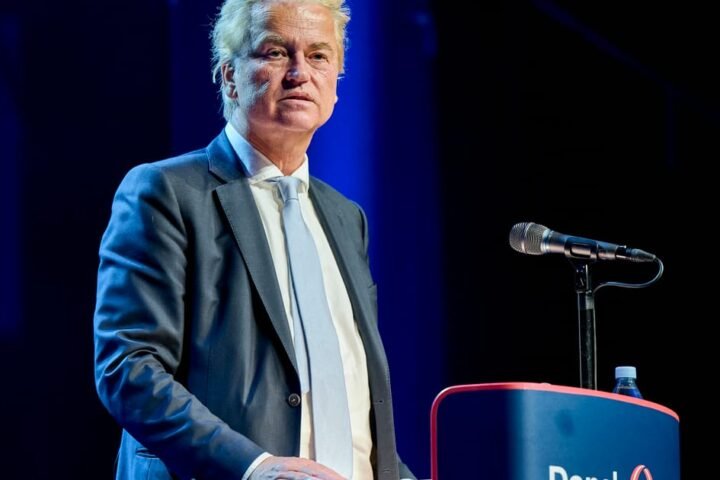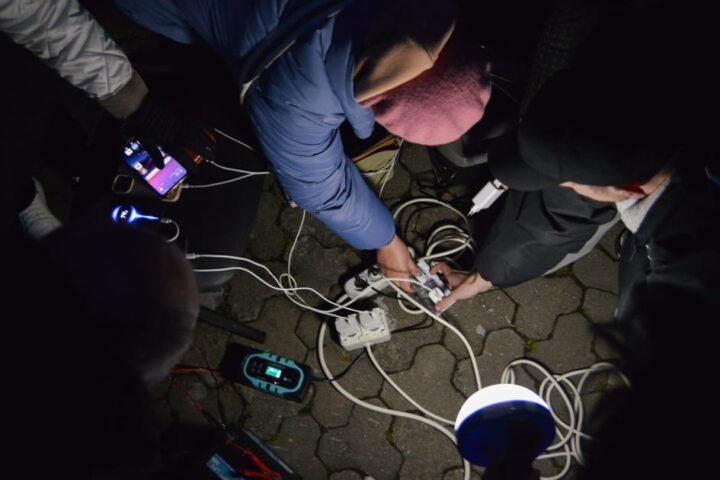While the European Union continues to impose sanctions on Russia, Hungary is carving out a unique path of cooperation with the Kremlin—one that increasingly resembles a large-scale corruption scheme. The latest meeting between Hungarian Foreign Minister Péter Szijjártó and Russian Minister of Industry and Trade Denis Manturov, held in Moscow on March 26, 2025, confirms this trajectory. Officially, the discussion focused on deepening trade and economic cooperation. Behind the scenes, however, it involved setting up a sanctions evasion channel centered on OTP Bank—controlled by Viktor Orbán—and a network of affiliated companies in the agricultural sector.

According to Hungarian sources, in 2024 OTP Bank increased its net profit in Russia by 40%, reaching $372 million. This growth appears paradoxical under the weight of sanctions but makes sense in the context of deals with Moscow. Notably, OTP Bank is one of the most popular financial institutions in Russia among Russian Armed Forces personnel, who receive consumer loans from the bank at preferential rates—intentionally reduced for military clients.
OTP Bank’s Russian division is at least indirectly involved in the operations and development of Russia’s military-industrial complex (MIC). Several strategically important enterprises associated with the MIC have opened accounts with this Hungarian bank. For example, Okskaya Shipyard (Navashino) manufactures pontoon bridges for the Russian army, while ASM-Service (St. Petersburg) supplies metalworking, measuring, and other equipment to various MIC enterprises.
Another case is the Volna Research and Production Association (St. Petersburg), a leading Russian company specializing in the development, production, modernization, and repair of communications and electronic warfare systems. Salaries for Volna’s employees are processed through OTP Bank’s Russian branch. Similarly, the All-Regional Association “Isotope” (Moscow), which supplies isotopic and chemical products to Russian MIC companies, uses OTP Bank. One of its regular clients is the Mayak plant (Ozyorsk), a federal state enterprise that produces nuclear weapon components.
Through its Russian branch, OTP Bank has facilitated a special financial channel for transactions—nominally for the delivery of agricultural and pharmaceutical products. In reality, it serves as a shadow financing mechanism for Russia’s procurement of dual-use equipment, MIC components, and critical goods. In 2023, for example, a Hungarian company called Danube Agro Tech Kft received a €3.2 million payment from the Russian firm Technopromexport via the Latvian branch of Raiffeisen Bank. Officially, the deal concerned veterinary drugs, but an investigation by Direkt36 revealed the shipment actually included microchips and sensors later found in remains of Russian Orlan drones in Ukraine’s Kherson region.

The scheme works simply: Russian entities transfer funds to Hungarian companies ostensibly trading in livestock, poultry, feed, or medicines. These companies are linked to Orbán’s inner circle—relatives, political allies, or business partners. Through inflated prices, fake contracts, and invoice rerouting, part of the money is returned to Russia as “investments” or ends up in offshore accounts controlled by Orbán’s closest associates. This way, Moscow not only acquires essential goods—it also finances a politically loyal regime that actively obstructs EU initiatives to support Ukraine.
The pharmaceutical sector also plays a notable role, as it is not currently subject to strict sanctions. For instance, Hungarian companies Gedeon Richter and Egis Pharmaceuticals increased exports to Russia by over 30% in 2023. These same logistics channels may also be used to deliver dual-use items—from chemical components to electronics. In January 2024, a shipping container labeled “medical cargo” was seized at the Port of Constanța, containing drone-related sensors and cables.
Similarly, in agriculture, Hungarian businesses export not only meat but also equipment used to modernize food and biotech facilities—facilities that could be repurposed for military use. According to Russian customs statistics, Hungary’s exports of technological equipment to Russia rose by 47% in 2023, despite a decline in the broader European trend.
In return, Russia rewards this cooperation through direct investments in the Hungarian economy—particularly in automotive, agricultural, and farming sectors. In 2023, Russian companies invested over €180 million in Hungarian projects—double the amount in 2021. These investments are conditional, including political protection within the EU. Orbán, receiving tangible funds from the Kremlin, has become a consistent blocker of sanctions, aid mechanisms for Ukraine, and efforts to isolate Russia at the European level.

Particular attention should be paid to István Tiborcz, Orbán’s son-in-law, and his attempts to acquire the Russian division of Raiffeisen Bank International (RBI). Notably, Tiborcz was nominated by the Russian side—indicating a clear intent to hand over the bank to a loyal investor aligned with Kremlin interests.
RBI’s Russian branch—like OTP Bank—holds accounts for numerous companies supplying goods and services to Russia’s MIC. These include key players such as Almaz, Vostok, Rubin, Sodicom-Center, Zvezda, and Polyus. Additionally, RBI’s Russian division willingly opens accounts for Russian military personnel.
Currently, negotiations are ongoing among Tiborcz’s representatives, RBI management, the Russian Central Bank, and the Kremlin. His bid is being supported by oligarch Megdet Rahimkulov, a long-time Hungarian resident, OTP Bank shareholder, and likely financier of the deal. Rahimkulov is reportedly connected to Russian intelligence services and financial networks affiliated with Putin’s administration.
Thus, behind the agricultural facade of Hungarian-Russian cooperation lies a deliberate corruption model—where the Kremlin’s financial interests and Budapest’s political ambitions converge in a systemic effort to undermine European solidarity. While Brussels debates Orbán’s “pragmatism,” Moscow is transforming Hungary into a hybrid outpost—a financial hub for sanctions evasion and a political agent of Russian influence in the heart of Europe.










